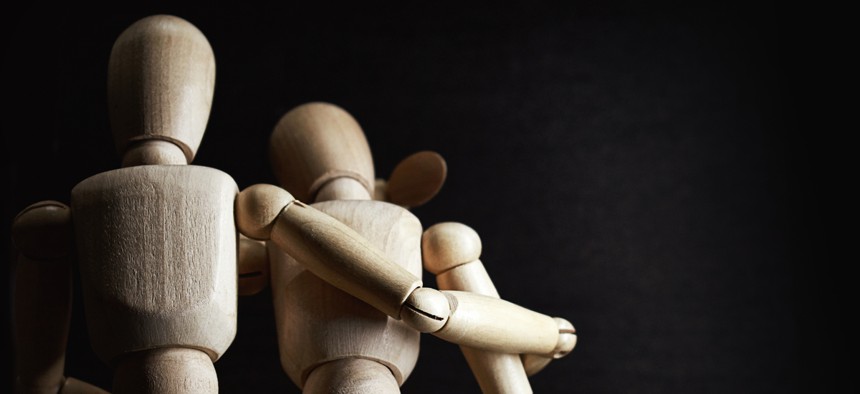FCC Launches Plan to Make Suicide Hotline Accessible Through a 3-Digit Dial Code

Candylan/Shutterstock.com
988 could soon be the 911 for suicide prevention.
Americans could soon dial an easy-to-remember 3-digit number—988—to directly reach the National Suicide Prevention Lifeline.
The Federal Communications Commission approved a notice of proposed rulemaking Thursday to require all telecommunications carriers and voice over internet protocol service providers to modify their networks and enable users to reach Lifeline—a national network of crisis centers that provides a 24/7, toll-free mental health support hotline—through the new quick-to-access code within 18 months. The commission will soon accept public comments on the move via a post in the Federal Register and will then hold another vote to officially pass a final measure.
“988 has an echo of the 911 number we all know as an emergency number,” FCC Chairman Ajit Pai said as the mandate was under consideration at the agency’s December open meeting. “We believe that this 3-digit number dedicated for this purpose will help ease access to crisis services, it will reduce the stigma surrounding suicide and mental health conditions, and ultimately, it will save lives.”
The proposed rule follows the National Suicide Hotline Improvement Act, which Congress passed in 2018, directing the commission to assess and report on how feasible it would be to designate a short, easy number to boost American’s use of the Lifeline crisis network and suicide prevention service. The FCC completed a report on the topic this August, with support from the Veterans Affairs and Health and Human Services Departments, the Substance Abuse and Mental Health Services Administration, or SAMHSA, which runs the hotline, and the North American Numbering Council. The report indicates that such a 3-digit number “would likely make it easier for Americans in crisis to access potentially life-saving resources.” Pai then initially proposed the plan in November.
The number 988 was chosen because it appears to provide “the fastest, and therefore, best path” to implementing a 3-digit dial-in code.
During the meeting Thursday morning, the chairman, commissioners and a representative from the FCC’s Wireless Competition Bureau shared statistics and personal anecdotes to highlight the harsh realities of the nation’s suicide crisis that inspired the change. Pai noted that the United States’ suicide rate is presently at its highest level since World War II, and that more than 47,000 Americans died by suicide (and 1.4 million adults attempted it) in 2017. Also that year, suicide rates in rural communities were 1.8 times that in urban counties. In expressing his support, Commissioner Geoffrey Starks emphasized the need to continue to support mental health access and connectivity for minorities and those that are unfortunately impacted by the digital divide. Attendees also highlighted how rates are more elevated for veterans and the LGBTQ communities, as well as teens and minorities.
And one commissioner also opened up about his family’s own personal experience with suicide.
“I do want to say, there is a portion of people out there that no matter what number is chosen, no matter how easy it is to dial, it will make no difference. They have made a choice and head down a different direction—I have experience on this,” Commissioner Michael O'Rielly said. “My brother-in-law left this world two and a half months ago under his own hand, and it didn’t matter what number was going to be there.” Still, the commissioner praised the proposed rule and said that it’s really about “those willing to listen,” and people who “can be driven in a different direction.”
“So I pray that this item has the impact that we expect it to,” O’Rielly said. “I hope it really does save lives.”
The new number will likely lead to increased demand for crisis services, so Pai said going forward, the VA, SAMHSA, HHS and other stakeholders will be encouraged to help bolster the overall effectiveness of the Lifeline. He also noted that the ultimate goal is to boost Americans’ access to services that some so desperately need. Pai explained that the day after actor and comedian Robin Williams died, the Lifeline received its highest daily call volume in history. The second highest came when the rapper Logic released a song entitled with the Lifeline’s current number—1-800-273-8255—which told listeners that help was available.
“These events indicate that awareness of the Lifeline will lead more Americans to reach out and seek help. Indeed, as the CEO of one of the Lifeline’s crisis centers has explained, and I quote, ‘the hurdle we’ve always had is getting people to know how to find us,’” Pai said. “A shorter number could be a gamechanger.”






